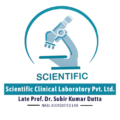Departments
Immunoassay
Overview:
Immunoassay
The Immunoassay department focuses on detecting and measuring specific antibodies and antigens in the blood. Our tests are essential for diagnosing infections, autoimmune disorders, and other conditions. We use advanced immunoassay techniques to provide accurate and reliable results.
ELISA (Enzyme-Linked Immunosorbent Assay) detects and quantifies specific antibodies or antigens in a sample. It is used to diagnose infections, autoimmune diseases, and monitor immune responses by measuring the concentration of target molecules.
Immunoassay tests are generally accurate, but the results may need confirmation with additional tests. Factors such as sample quality and the specific assay used can affect accuracy. Your healthcare provider will interpret the results in the context of your overall health.
Preparation for immunoassay tests typically involves providing
ELISA (Enzyme-Linked Immunosorbent Assay):
ELISA is a widely used technique for detecting and quantifying specific antibodies or antigens in a sample. It is used for diagnosing infections, autoimmune diseases, and monitoring immune responses. The test involves an enzyme-linked antibody and a substrate that produces a measurable signal.
Immunofluorescence Assays:
Immunofluorescence assays use fluorescent dyes to label specific antibodies or antigens in a sample. This technique helps visualize and quantify the presence of specific proteins or microorganisms, aiding in the diagnosis of various conditions.
